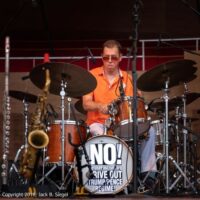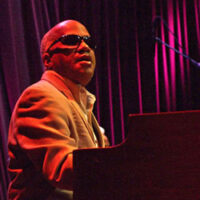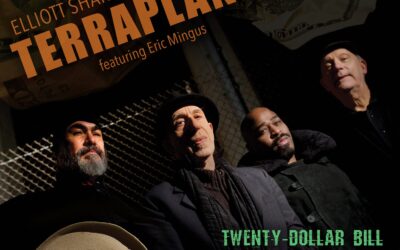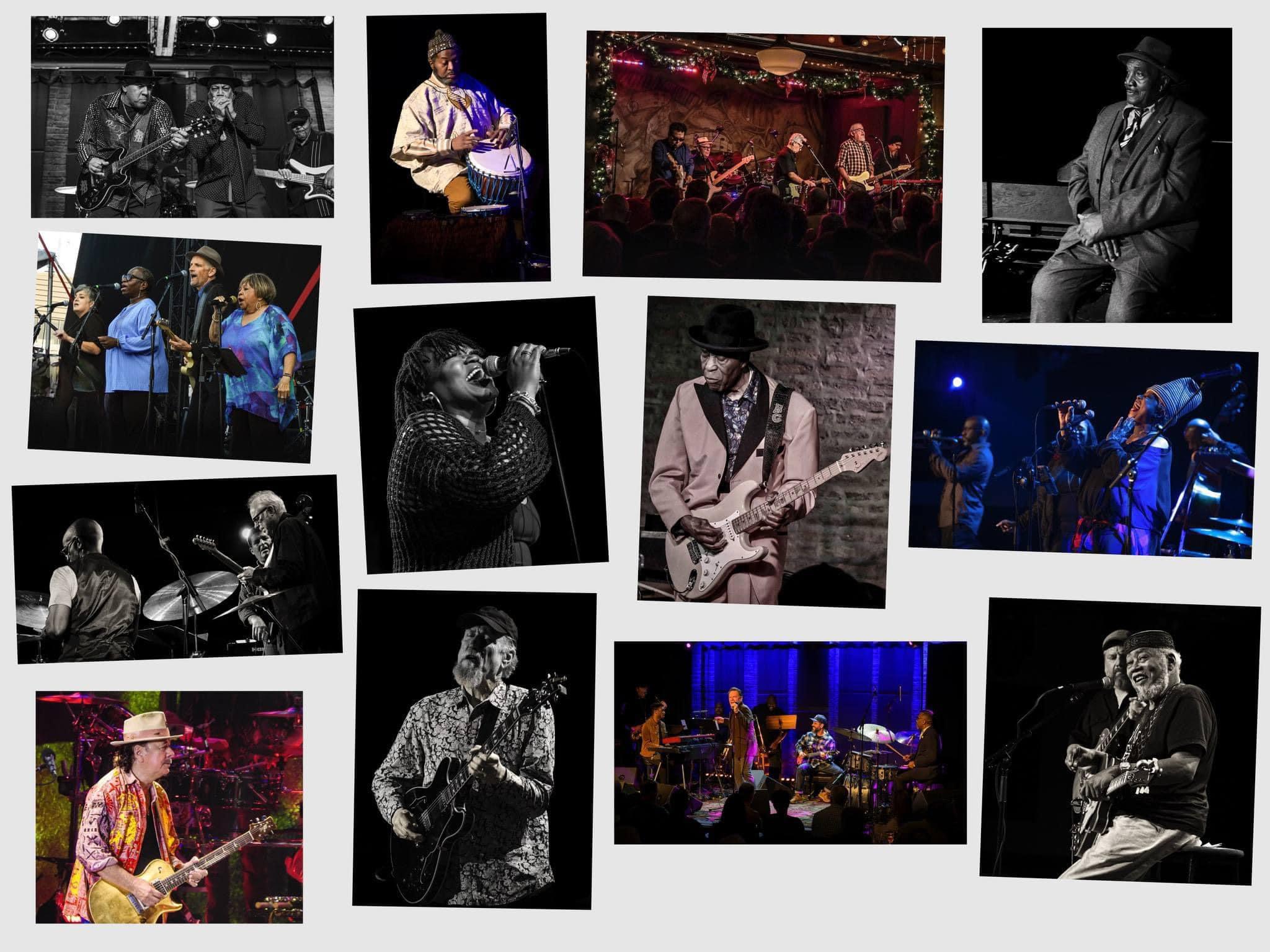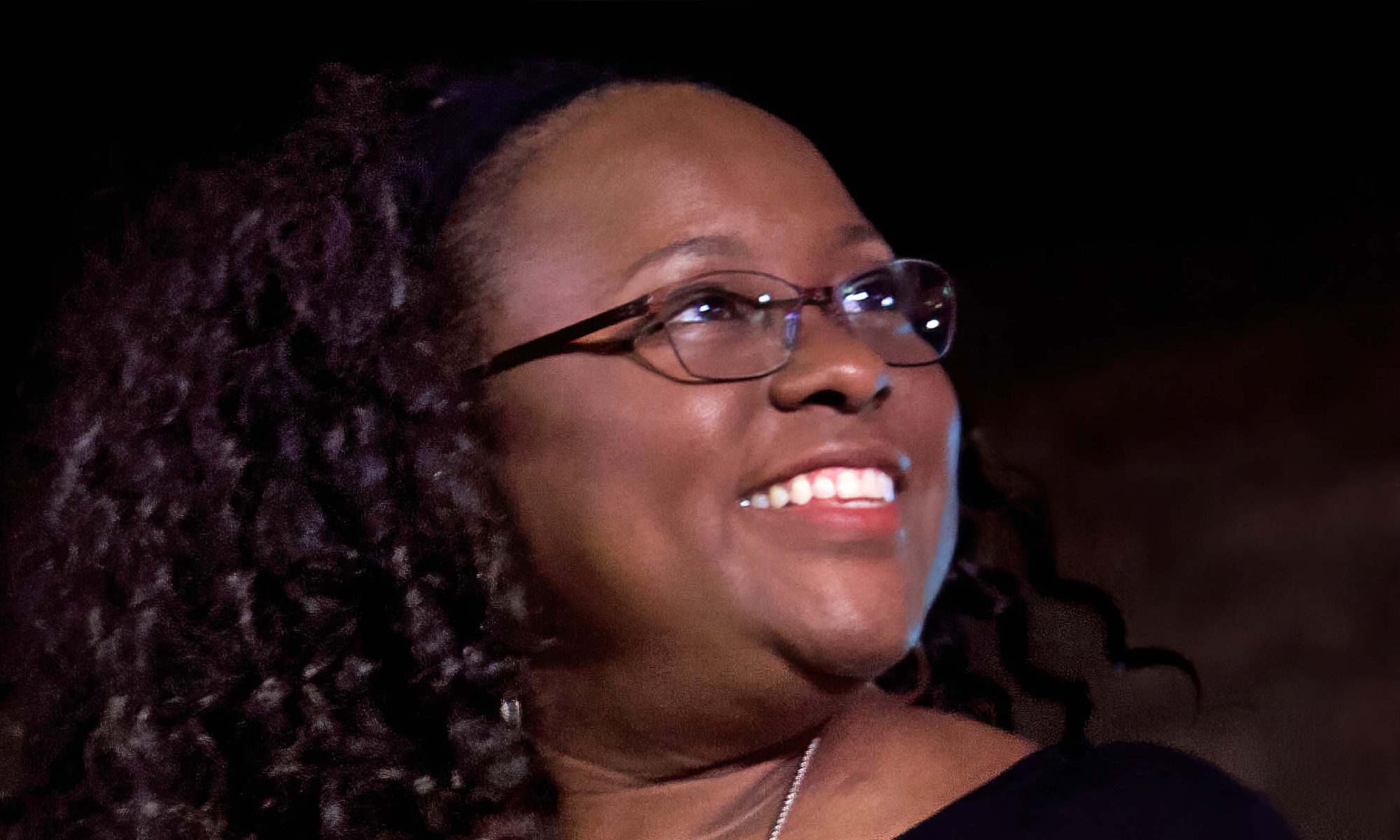Born Robert Lee McCollum: November 30, 1909, Helena, Helena-West Helena, AR
Died: November 5, 1967, Helena, Helena-West Helena, AR
Nighthawk was inducted into the Blues Hall of Fame in 1983.

Nighthawk’s Delmark LP & CD.

Robert Nighthawk (1909-1967) was one of the foremost blues guitarists of his era. Although he rarely stayed long in one town, he called Friars Point home at various times from the 1920s to the 1960s. In a 1940 recording, he sang of “going back to Friars Point, down in sweet old Dixie Land.” During Nighthawk’s time, blues musicians (including the legendary Robert Johnson) played at local juke joints and house parties and in front of stores, such as Hirsberg’s at this site.
Robert Nighthawk was one of the Delta’s most famous blues artists during the 1940s and ‘50s, known for his radio broadcasts on KFFA in Helena, Arkansas, and WROX in Clarksdale, as well as for his recordings and his wide-ranging travels. Nighthawk, it seemed, was always in the process of changing his address, his marital status, or his name. Born Robert Lee McCollum on November 30, 1909, in Phillips County, Arkansas, he played harmonica before he learned guitar from Houston Stackhouse on a farm in Murphy Bayou, Mississippi, in 1931. On his first records, including “Prowling Night-Hawk” in 1937, he was billed as Robert Lee McCoy; among several other recording monikers, the most appropriate was Rambling Bob. He lived in Chicago, St. Louis, Memphis, Florida, and elsewhere, in between periodic returns to the Delta.
Nighthawk was famed for his cool, composed vocal style and his influential slide guitar sound, which he achieved by sliding a piece of brass pipe along the guitar frets. His best known records included “Annie Lee Blues,” “Black Angel Blues,” “The Moon is Rising,” and “Crying Won’t Help You.” B.B. King once named Nighthawk as one of his ten favorite guitarists. Nighthawk’s renown has spread internationally since his death in Helena on November 5, 1967. He was elected to the Blues Hall of Fame in 1983.
Among Nighthawk’s several marriages, at least one was in Friars Point, where he worked on John McKee’s plantation. While most local blues activity was in plantation juke joints or in the New Town area on the southern end of Friars Point, sometimes merchants hired musicians to play inside or in front of their downtown stores to attract potential customers; at other times, performers would just set up outside and play for tips. But, according to drugstore owner Robert Hirsberg, merchants sometimes complained when crowds were so thick that no one could get in–or out of–the stores. Muddy Waters recalled Robert Johnson drawing a huge crowd for a street corner performance in the 1930s, when Friars Point was a bustling center of river commerce and a weekend shopping mecca for residents of the countryside. Johnson also reportedly played at a local barrelhouse called the Blue and White Club, and on a 1937 recording, he sang, “Just come on back to Friars Point, mama, and barrelhouse all night long.” African American performers based in Friars Point who later made records also included the Sons of Wonder gospel group and blues harmonica players Robert Diggs and Blind Mississippi Morris Cummings.
content © Mississippi Blues Commission


